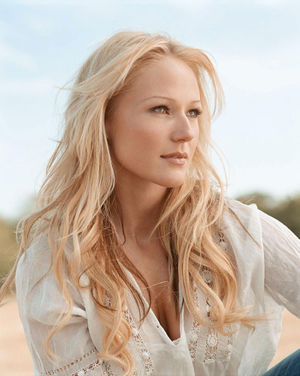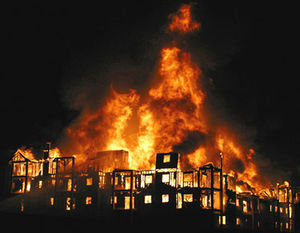Joule
The joule (pron.: joo-uuuhhh-yew-lee), symbol J, is a derived unit of energy, work, or heat in the International Standard System of Measuring Things. Scientists, since first measuring the joule, went on to prove "work" to be completely synonymous with "heat," given their same unit of measurement, launching a tireless crusade to burn everything in their lab in the spirit of scientific progress.
A female joule is called a jouless, though that term is rather archaic and may draw dirty looks if you say it too loudly in New Jersey.
History[edit | edit source]
Joules have technically existed since time immemorial, keeping things warm and ensuring that atoms get off their asses and go to work every morning. However, they were first formally recognized by humanity during the early Dark Ages. Most alchemists plied their trade on the basis of complete bullshit, siphoning cow feces through complicated devices with hopes that they magically turned into gold, but a small German group known as the Vunderbars swept away the competition by approximating more modern scientific methods. The crux of their alchemy was what they called a "joule," corresponding roughly with the modern concept of temperature,[1] to perfectly calibrate their flame-driven alchemy machines and achieve a perfect product. Of course, they failed every time, but mounds of ash were luckily considered a luxury in Germany at the time, among peasants, so they still made out okay in the end.
Eureka![edit | edit source]
Modern science was invented! in the 19th century. A bunch of white British people took it upon themselves to standardize the material of the universe. One of these great men was James Prescott Joule, descendant of the Oxfordshire Vunderbar-Prescott-Joules[2], who staked his flag on the fundamental unit of thermodynamics before that greedy William "Lord Kelvin" Thomson could get his grubby, Cornish-game-hen-grease-soaked hands on it.
Lord Kelvin really wanted to colonize the fabled unit of work with his bearded namesake, however, and was righteously pissed with Joule. As the vengeful head of the Academy of Maths And Sciences And Crumpets And Other Assorted Regal Things Yes Yes Certainly, Kelvin revenged himself upon his nemesis by banning all joules from the Academy. His juvenile campaign was supported by a marketing campaign as catchy as it was unscientific.[3] Joule earned the last laugh by sneaking into the Academy's archives and replacing each instance of his own name with the similar word "jews" within Kelvin's interdictions. Kelvin, disocvering his hobnobbery, shared a hearty laugh with his erstwhile foe, as every Englishman loved a little good-natured bigotry every now and then. They buried the hatchet.
Theory of Work = Fire[edit | edit source]
Most post-Kelvinian attempts to understand the joule involve approximating the equivalency of its measurements. Scientists at the University of Berkeley have worked themselves into a sweat attempting to discover the link between working and sweat, in hopes that they might permanently substitute one for the other, becoming totally hot without any effort at all.[4] They had long suspected that "working out" directly resulted in "getting hot," but were too busy playing with quarks or something to prove it. For years, they studied the likes of Olympian shot-puttists and nervous standup comedians in lab conditions in a struggle to unearth their hot, sweaty secrets.
However, decades of research only yielded inconclusive evidence: by devoting so much work to the study of avoiding work, they created a paradox and accomplished nothing but wasting time. The Berkeley scientists, realizing how utterly silly they had been, ironically discovered the key of joule transformation by burning down their lab, converting all their work into something totally hot.[5]
World-class criminal economists have followed in the researchers' footsteps by using the established relationships between work and heat to dictate the market prices within the drug and gun trades, respectively.

